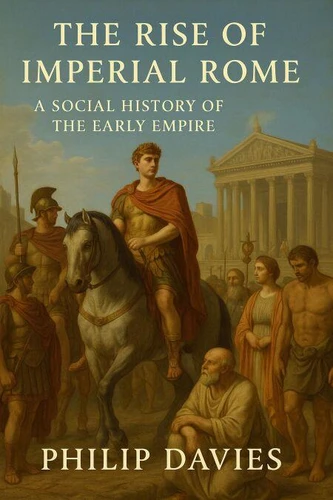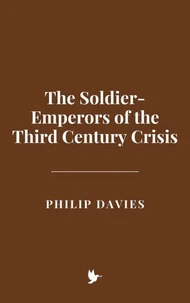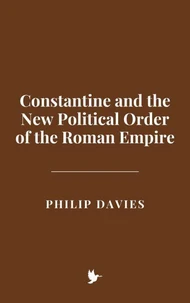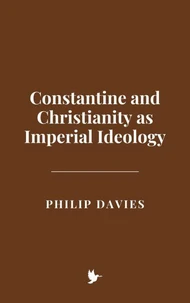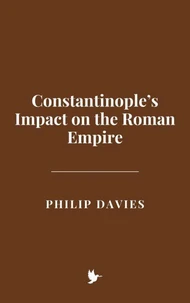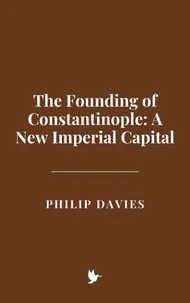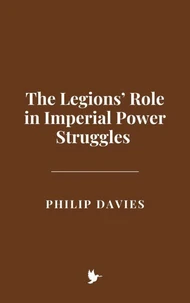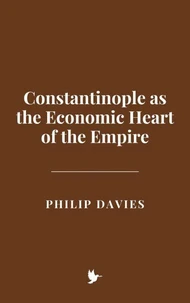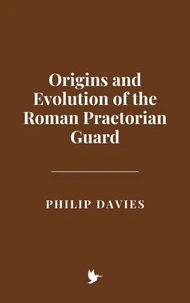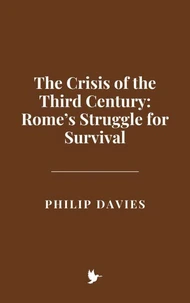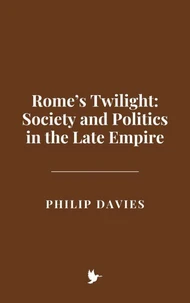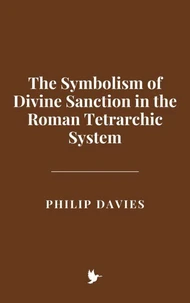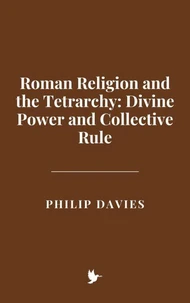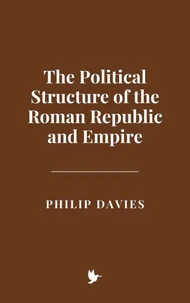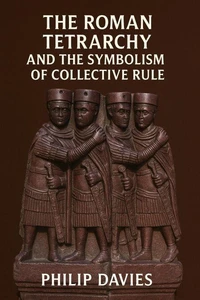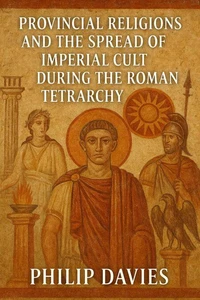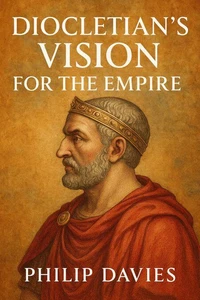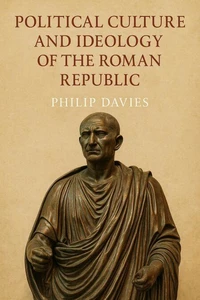The Rise of Imperial Rome: A Social History of the Early Empire
Par :Formats :
Disponible dans votre compte client Decitre ou Furet du Nord dès validation de votre commande. Le format ePub est :
- Compatible avec une lecture sur My Vivlio (smartphone, tablette, ordinateur)
- Compatible avec une lecture sur liseuses Vivlio
- Pour les liseuses autres que Vivlio, vous devez utiliser le logiciel Adobe Digital Edition. Non compatible avec la lecture sur les liseuses Kindle, Remarkable et Sony
 , qui est-ce ?
, qui est-ce ?Notre partenaire de plateforme de lecture numérique où vous retrouverez l'ensemble de vos ebooks gratuitement
Pour en savoir plus sur nos ebooks, consultez notre aide en ligne ici
- FormatePub
- ISBN8230403074
- EAN9798230403074
- Date de parution16/04/2025
- Protection num.pas de protection
- Infos supplémentairesepub
- ÉditeurIndependently Published
Résumé
The Rise of Imperial Rome: A Social History of the Early Empire by Philip Davies offers an in-depth exploration of the early Roman Empire, focusing on the social, political, and cultural transformations that occurred from the establishment of imperial rule under Augustus to the heights of the Empire's power. This book delves into the daily lives of Romans, examining the structures that defined Roman society, including family life, social classes, gender roles, religion, education, and the military.
It analyzes how the expansion of the Empire affected not just the elite but also the vast majority of the population, including peasants, slaves, and freedmen, and how Roman citizenship and identity were shaped in this period. The book also explores the complexities of Roman governance, including the shift from the Republic to the imperial system and the way the emperors, particularly Augustus and his successors, navigated the challenges of power consolidation, military expansion, and economic management.
Through detailed historical analysis, the narrative paints a picture of a society that was both deeply hierarchical and remarkably adaptable, drawing on a vast range of sources-from primary texts, legal documents, and archaeological findings to provide a rich understanding of the social dynamics that underpinned the rise of Rome as a dominant force in the ancient world. This work emphasizes the contrasts between Roman ideals of virtue, liberty, and civic responsibility, and the realities of life in a sprawling empire, offering a critical perspective on the social inequalities and the transformation of Roman values that ultimately led to the decline of the Western Roman Empire.
It analyzes how the expansion of the Empire affected not just the elite but also the vast majority of the population, including peasants, slaves, and freedmen, and how Roman citizenship and identity were shaped in this period. The book also explores the complexities of Roman governance, including the shift from the Republic to the imperial system and the way the emperors, particularly Augustus and his successors, navigated the challenges of power consolidation, military expansion, and economic management.
Through detailed historical analysis, the narrative paints a picture of a society that was both deeply hierarchical and remarkably adaptable, drawing on a vast range of sources-from primary texts, legal documents, and archaeological findings to provide a rich understanding of the social dynamics that underpinned the rise of Rome as a dominant force in the ancient world. This work emphasizes the contrasts between Roman ideals of virtue, liberty, and civic responsibility, and the realities of life in a sprawling empire, offering a critical perspective on the social inequalities and the transformation of Roman values that ultimately led to the decline of the Western Roman Empire.
The Rise of Imperial Rome: A Social History of the Early Empire by Philip Davies offers an in-depth exploration of the early Roman Empire, focusing on the social, political, and cultural transformations that occurred from the establishment of imperial rule under Augustus to the heights of the Empire's power. This book delves into the daily lives of Romans, examining the structures that defined Roman society, including family life, social classes, gender roles, religion, education, and the military.
It analyzes how the expansion of the Empire affected not just the elite but also the vast majority of the population, including peasants, slaves, and freedmen, and how Roman citizenship and identity were shaped in this period. The book also explores the complexities of Roman governance, including the shift from the Republic to the imperial system and the way the emperors, particularly Augustus and his successors, navigated the challenges of power consolidation, military expansion, and economic management.
Through detailed historical analysis, the narrative paints a picture of a society that was both deeply hierarchical and remarkably adaptable, drawing on a vast range of sources-from primary texts, legal documents, and archaeological findings to provide a rich understanding of the social dynamics that underpinned the rise of Rome as a dominant force in the ancient world. This work emphasizes the contrasts between Roman ideals of virtue, liberty, and civic responsibility, and the realities of life in a sprawling empire, offering a critical perspective on the social inequalities and the transformation of Roman values that ultimately led to the decline of the Western Roman Empire.
It analyzes how the expansion of the Empire affected not just the elite but also the vast majority of the population, including peasants, slaves, and freedmen, and how Roman citizenship and identity were shaped in this period. The book also explores the complexities of Roman governance, including the shift from the Republic to the imperial system and the way the emperors, particularly Augustus and his successors, navigated the challenges of power consolidation, military expansion, and economic management.
Through detailed historical analysis, the narrative paints a picture of a society that was both deeply hierarchical and remarkably adaptable, drawing on a vast range of sources-from primary texts, legal documents, and archaeological findings to provide a rich understanding of the social dynamics that underpinned the rise of Rome as a dominant force in the ancient world. This work emphasizes the contrasts between Roman ideals of virtue, liberty, and civic responsibility, and the realities of life in a sprawling empire, offering a critical perspective on the social inequalities and the transformation of Roman values that ultimately led to the decline of the Western Roman Empire.

